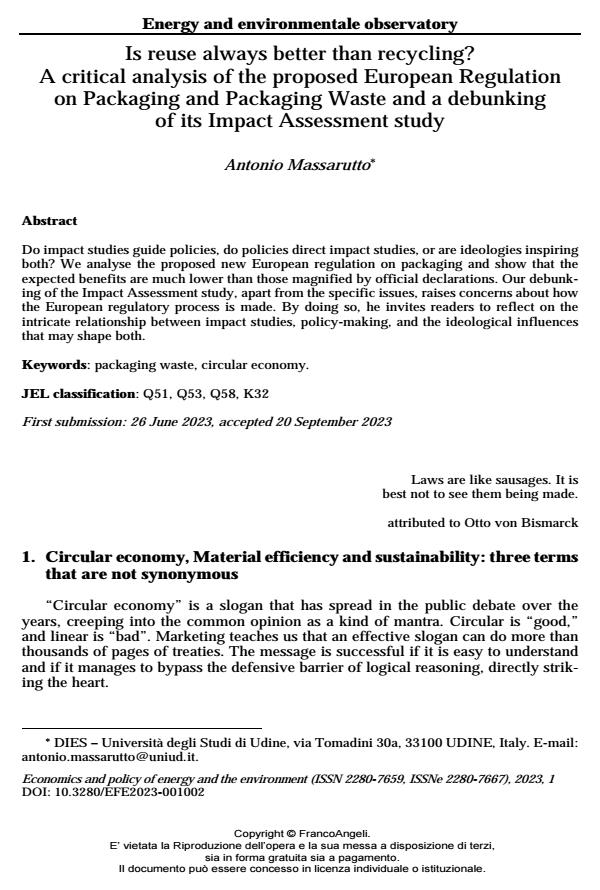Is reuse always better than recycling? A critical analysis of the proposed European Regulation on Packaging and Packaging Waste and a debunking of its Impact Assessment study
Titolo Rivista ECONOMICS AND POLICY OF ENERGY AND THE ENVIRONMENT
Autori/Curatori Antonio Massarutto
Anno di pubblicazione 2023 Fascicolo 2023/1
Lingua Inglese Numero pagine 17 P. 17-33 Dimensione file 156 KB
DOI 10.3280/EFE2023-001002
Il DOI è il codice a barre della proprietà intellettuale: per saperne di più
clicca qui
Qui sotto puoi vedere in anteprima la prima pagina di questo articolo.
Se questo articolo ti interessa, lo puoi acquistare (e scaricare in formato pdf) seguendo le facili indicazioni per acquistare il download credit. Acquista Download Credits per scaricare questo Articolo in formato PDF

FrancoAngeli è membro della Publishers International Linking Association, Inc (PILA), associazione indipendente e non profit per facilitare (attraverso i servizi tecnologici implementati da CrossRef.org) l’accesso degli studiosi ai contenuti digitali nelle pubblicazioni professionali e scientifiche.
Do impact studies guide policies, do policies direct impact studies, or are ideologies inspiring both? We analyse the proposed new European regulation on packaging and show that the expected benefits are much lower than those magnified by official declarations. Our debunk- ing of the Impact Assessment study, apart from the specific issues, raises concerns about how the European regulatory process is made. By doing so, he invites readers to reflect on the intricate relationship between impact studies, policy-making, and the ideological influences that may shape both.
Parole chiave:packaging waste, circular economy.
Jel codes:Q51, Q53, Q58, K32
Antonio Massarutto, Is reuse always better than recycling? A critical analysis of the proposed European Regulation on Packaging and Packaging Waste and a debunking of its Impact Assessment study in "ECONOMICS AND POLICY OF ENERGY AND THE ENVIRONMENT" 1/2023, pp 17-33, DOI: 10.3280/EFE2023-001002